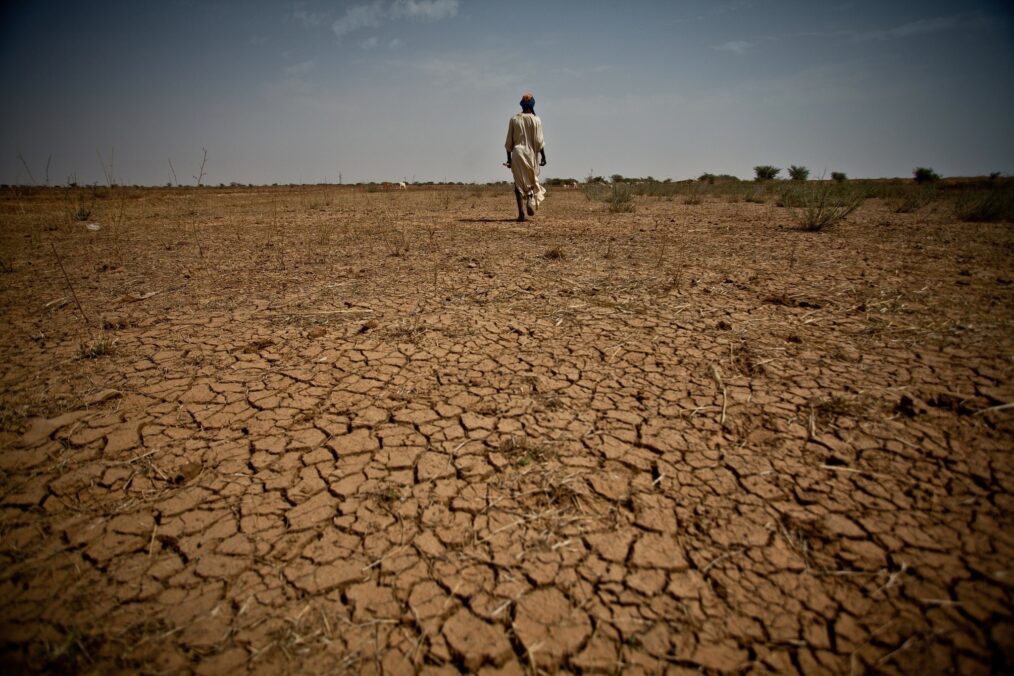
Famine and Terror: A Warning from Africa’s Sahel Region

The village of Siédougou in Burkina Faso, at the forefront of the Sahel’s climate crisis.
They say the way to a person’s heart is through her (sic) stomach. That may be true because when food runs out hearts turn sour. With climate change’s breakneck pace, food supplies across the globe are in peril. If communities lose the ability to feed themselves then famine results, threatening social stability. We have seen how terrorism fights for a foothold in such cases, intent to capitalize on the discontent.
The Sahel region in Africa is an excellent example. The 3,300-mile swath of land in northern Africa is experiencing rapid desertification. This has plunged it into a state of extreme food insecurity. 20 million of the region’s residents – including 5 million malnourished children – face potential starvation due to the increasingly inhospitable climate. As people starve, conflict and tribalism emerge. Regional stability is destroyed and thousands of lives are lost.
As people starve, conflict and tribalism emerge. Terrorists exploit this state of affairs. Organizations like Al Shabab and Al Qaeda spill across borders from Mauritania to Sudan.
In the Sahel, where jobs are scarce and subsistence farming is becoming impossible, young people are unemployed. Starving, and desperate for something to do, terrorism offers purpose and income. Terrorists exploit this state of affairs, recruiting young people with the promise of food and wages for them and their families.
Massive numbers of young recruits have swollen the ranks of Al Shabab, Al Qaeda, and others across the Sahel. The organizations end up spilling across national borders from Mauritania to Sudan. The region has become a figurative tinderbox, ready to explode.

French troops on patrol during Operation Serval in Mali, 2013.
The Sahel is one example of the link between extreme climate and extremist ideology. As the Earth warms and our climate further destabilizes the correlation will surely become more conspicuous. Desertification is extremely difficult to reverse, inspiring the UN to call it the greatest environmental challenge of our time. One-third of the Earth’s population may be at risk, threatening food and social instability like we’ve seen in the Sahel.
One-third of the Earth’s population may be at risk. If even a fraction of those affected seeks shelter in the ranks of terrorist organizations, the world will face an epidemic.
If even a fraction of those affected seeks shelter from the instability in the ranks of terrorist organizations, then the world will face a legitimate epidemic within as well as beyond the borders of those regions initially affected.
It is too late to reverse climate change. It is unrealistic to advocate for policies extreme enough to reverse desertification (most countries don’t even meet emissions targets). However, we can avoid the extremism associated with climate change through developmental reform. By changing peoples’ reactions to warming climates we can mitigate their turning to terrorist organizations for survival.
Better jobs for the good of the community, microloans, and sustainable farming can help stem harm.
Development is the solution that will stem the tide of extremism. Paul Melly, an Associate Fellow at Chatham House, explains how causes of regional conflict in desertification zones like the Sahel can be boiled down to, “…poverty, lack of economic options, and resultant frustration.”
But the international community can help give these people options. Governments, NGOs and the private sector can ensure those who want it can get the education they need. This can lead to better jobs doing work people enjoy for the good of their community rather than tearing it asunder. Surely microloans, sharing means of sustainable farming, and helping develop irrigation systems can help stem harm. These are all alternative solutions to very real problems in rapidly desertifying regions, at least in the short-term.
Hearing locals when they explain how we can help them address the causes of their frustration is a surefire way to show them there are options other than joining terrorist groups. In so doing, the international community has the power to save lives, stop war, and make the world a safer place in the long run.
